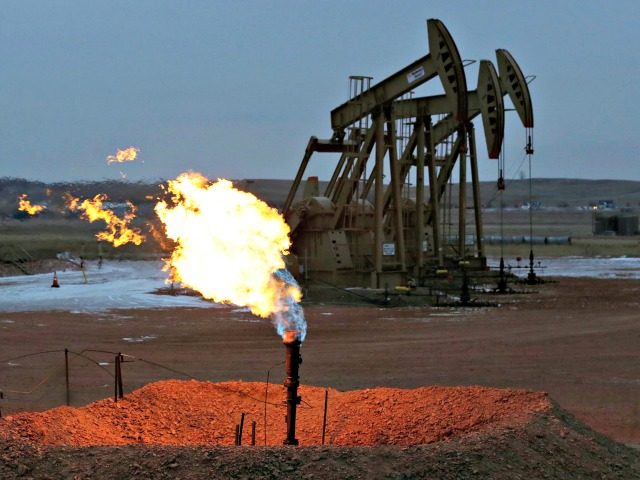Senators John McCain (R-AZ), Lindsey Graham (R-SC), and Susan Collins (R-ME) voted to keep an Obama-era climate rule limiting methane emissions from oil and natural gas drilling.
Forty-nine Republicans voted to abolish the Bureau of Land Management (BLM) rule, one vote short of passing through the Senate. Vice President Mike Pence stood ready at the Capitol to break the 50-50 tie.
Graham and Collins previously publicized their intention to vote against the legislation. McCain’s vote came as a surprise to Senate leadership. McCain said he voted against the bill because he fears that it would prevent the BLM from writing improved regulation in the future.
“While I am concerned that the BLM rule may be onerous, passage of the resolution would have prevented the federal government, under any administration, from issuing a rule that is ‘similar,’ according to the plain reading of the Congressional Review Act,” McCain said in a statement.
McCain added, “I believe that the public interest is best served if the Interior Department issues a new rule to revise and improve the BLM methane rule.”
The bill marks the first time Republicans failed to pass a Congressional Review Act (CRA) bill to repeal an Obama administration rule since President Donald Trump took office.
Critics of the Obama-era rule argue that it adds unnecessary costs to oil and natural gas drilling in federal lands.
Senator John Barrasso (R-WY) told reporters, “This was a very duplicative, unnecessary act of government interference in an area where BLM had no authority.”
Barrasso said that he will ask Interior Secretary Ryan Zinke to repeal the rule instead of attempting to repeal the rule again in the Senate.
“It was over-regulation by the Obama administration, and we tried to remove it with the Congressional Review Act. That fell one vote short today, and as a result we’ll call on the secretary to withdraw it.”
Secretary Zinke told Sen. Bob Portman (R-OH) that no matter the result for the CRA bill, the BLM will take action to reduce methane pollution.
Erik Milito, an executive at the American Petroleum Institute, lamented:
While it is disappointing that the Senate did not act to correct the rule more quickly, we look forward to working with the administration on policies that continue our commitment to safely produce the energy that Americans rely on, help consumers, create jobs, strengthen our national security, and protect our environment.
American Energy Alliance President Thomas Pyle issued a statement condemning the Senate’s inability to repeal the methane rule. He said:
The Senate just squandered an opportunity to protect American workers and families from a regulation aimed at making energy more expensive. The evidence against this regulation is overwhelming. Not only does this regulation fall outside of the BLM’s jurisdiction, but the energy sector is already significantly reducing methane emissions without this top-down directive from the federal government. The cost of complying with this regulation will ultimately fall on the shoulders of the American people. Fortunately, the fight isn’t over. It’s now up to the Trump administration to do what the Senate failed to do and protect the American people from this unnecessary and costly regulation.
Despite the setback in the Senate, the Interior Department will attempt to repeal the rule through administrative action. Kate McGregor, the Interior Department’s acting secretary for land and minerals, said, regarding the methane rule, that the agency will “suspend, revise or rescind given its significant regulatory burden that encumbers American energy production, economic growth and job creation.”
The agency did not signal which option it might choose.
McGregor cited Trump’s executive order asking agencies to repeal or change rules that damage domestic energy production.
The Interior secretary added, “The rule is expected to have real and harmful impacts on onshore energy development and could impact state and local jobs and revenue. Small independent oil and gas producers in states like North Dakota, Colorado and New Mexico, which account for a substantial portion of our nation’s energy wealth, could be hit the hardest.”

COMMENTS
Please let us know if you're having issues with commenting.